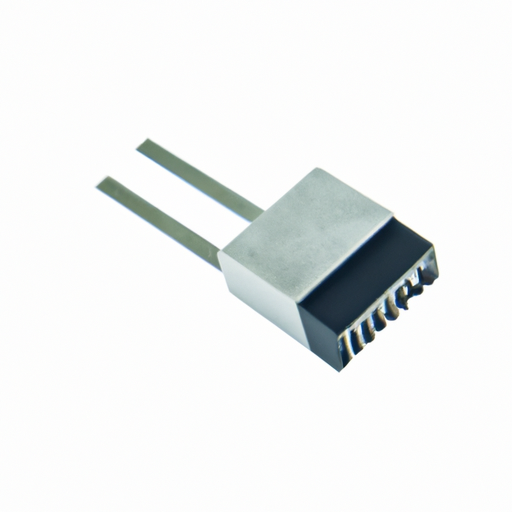What are the advantages of resistor voltage products?
What are the Advantages of Resistor Voltage Products?
I. Introduction
In the realm of electrical engineering and circuit design, resistors play a pivotal role. Among the various parameters that define their functionality, the concept of resistor voltage products stands out. This term refers to the relationship between voltage and resistance in a circuit, encapsulated in the fundamental formula \( V = I \times R \), where \( V \) is voltage, \( I \) is current, and \( R \) is resistance. Understanding resistor voltage products is crucial for engineers and designers as they navigate the complexities of circuit design. This article aims to explore the advantages of resistor voltage products, highlighting their significance in enhancing circuit performance, design flexibility, cost-effectiveness, thermal management, and safety.
II. Understanding Resistor Voltage Products
A. Explanation of Voltage Products
To grasp the advantages of resistor voltage products, it is essential to understand the underlying concepts of voltage and resistance.
1. **Definition of Voltage**: Voltage, or electric potential difference, is the force that pushes electric charges through a circuit. It is measured in volts (V) and is a critical factor in determining how much current will flow through a resistor.
2. **Definition of Resistance**: Resistance is the opposition to the flow of electric current, measured in ohms (Ω). It determines how much current will flow for a given voltage according to Ohm's Law.
3. **Formula: \( V = I \times R \)**: This fundamental equation illustrates the relationship between voltage, current, and resistance. By manipulating these variables, engineers can design circuits that meet specific performance criteria.
B. Role of Resistors in Circuits
Resistors serve several essential functions in electrical circuits:
1. **Current Limiting**: Resistors can limit the amount of current flowing through a circuit, protecting sensitive components from damage.
2. **Voltage Division**: In circuits with multiple components, resistors can create voltage dividers, allowing for the distribution of voltage across different parts of the circuit.
3. **Signal Conditioning**: Resistors are used in signal processing to filter and shape signals, ensuring that they meet the required specifications for further processing.
III. Advantages of Resistor Voltage Products
A. Enhanced Circuit Performance
1. **Improved Signal Integrity**: By carefully selecting resistor values, engineers can enhance the integrity of signals within a circuit. This is particularly important in high-frequency applications where signal distortion can lead to performance degradation.
2. **Reduced Noise Levels**: Resistor voltage products can help minimize noise in circuits, which is crucial for applications such as audio equipment and telecommunications. Lower noise levels lead to clearer signals and improved overall performance.
B. Increased Design Flexibility
1. **Customizable Voltage Levels**: Resistor voltage products allow designers to create circuits with specific voltage levels tailored to the needs of various components. This flexibility is vital in applications where different parts of a circuit require different operating voltages.
2. **Adaptability to Various Applications**: The versatility of resistors means they can be used in a wide range of applications, from consumer electronics to industrial systems. This adaptability makes them indispensable in modern circuit design.
C. Cost-Effectiveness
1. **Low-Cost Components**: Resistors are among the most affordable components in electronic circuits. Their low cost allows designers to create complex circuits without significantly increasing the overall budget.
2. **Reduction in Additional Circuitry**: By effectively utilizing resistor voltage products, engineers can often eliminate the need for additional components, such as voltage regulators or current limiters, further reducing costs and simplifying designs.
D. Thermal Management
1. **Heat Dissipation Properties**: Resistors can dissipate heat generated by current flow, which is essential for maintaining the stability and reliability of a circuit. Proper thermal management helps prevent overheating and potential failure of components.
2. **Impact on Component Longevity**: By managing heat effectively, resistor voltage products contribute to the longevity of electronic components. This is particularly important in high-power applications where excessive heat can lead to premature failure.
E. Safety and Protection
1. **Overcurrent Protection**: Resistors can provide a level of protection against overcurrent situations, helping to prevent damage to sensitive components. By limiting current flow, they act as a safeguard in various applications.
2. **Voltage Regulation**: Resistor voltage products can assist in maintaining stable voltage levels within a circuit, ensuring that components operate within their specified ranges. This regulation is crucial for the reliability of electronic systems.
IV. Applications of Resistor Voltage Products
A. Consumer Electronics
1. **Audio Equipment**: In audio systems, resistors are used to manage signal levels and prevent distortion, ensuring high-quality sound reproduction.
2. **Home Appliances**: Resistor voltage products are integral to the functioning of various home appliances, from washing machines to microwaves, where they help regulate power and control functions.
B. Industrial Applications
1. **Automation Systems**: In industrial automation, resistors play a vital role in controlling signals and ensuring the proper operation of machinery and equipment.
2. **Power Distribution**: Resistor voltage products are used in power distribution systems to manage voltage levels and protect against overcurrent situations.
C. Telecommunications
1. **Signal Processing**: In telecommunications, resistors are essential for processing signals, ensuring that data is transmitted accurately and efficiently.
2. **Network Equipment**: Resistor voltage products are used in routers, switches, and other network devices to manage power and signal integrity.
D. Automotive Industry
1. **Sensor Applications**: Resistors are used in various automotive sensors to ensure accurate readings and reliable performance.
2. **Control Systems**: In automotive control systems, resistor voltage products help regulate signals and maintain the proper functioning of critical components.
V. Challenges and Considerations
A. Limitations of Resistor Voltage Products
1. **Power Rating Constraints**: Resistors have power rating limits, and exceeding these can lead to overheating and failure. Designers must carefully consider the power ratings of resistors in their circuits.
2. **Tolerance and Variability**: Resistors come with tolerances that can affect circuit performance. Variability in resistor values can lead to inconsistencies in circuit behavior, making careful selection essential.
B. Importance of Proper Selection
1. **Choosing the Right Resistor**: Selecting the appropriate resistor for a specific application is crucial for achieving desired performance. Factors such as resistance value, power rating, and tolerance must be considered.
2. **Impact on Overall Circuit Design**: The choice of resistors can significantly influence the overall design and functionality of a circuit. Engineers must take a holistic approach to ensure that all components work harmoniously.
VI. Future Trends in Resistor Voltage Products
A. Advancements in Material Science
1. **Development of New Resistor Materials**: Ongoing research in material science is leading to the development of new resistor materials that offer improved performance and reliability.
2. **Impact on Performance and Reliability**: These advancements may result in resistors with better thermal management, lower noise levels, and enhanced durability, further expanding their applications.
B. Integration with Smart Technologies
1. **IoT Applications**: As the Internet of Things (IoT) continues to grow, resistors will play a crucial role in enabling smart devices to function effectively, managing power and signals in interconnected systems.
2. **Smart Grid Technologies**: In the context of smart grids, resistor voltage products will be essential for managing energy distribution and ensuring the stability of electrical systems.
VII. Conclusion
In summary, resistor voltage products offer numerous advantages that enhance circuit performance, provide design flexibility, and contribute to cost-effectiveness, thermal management, and safety. Their applications span a wide range of industries, from consumer electronics to automotive systems, underscoring their importance in modern electronics. As technology continues to evolve, the role of resistor voltage products will only become more significant, paving the way for innovations that improve performance and reliability in electronic systems. The future holds exciting possibilities for advancements in materials and integration with smart technologies, ensuring that resistors remain a fundamental component in the ever-evolving landscape of electrical engineering.
VIII. References
- Academic Journals
- Industry Publications
- Online Resources and Technical Manuals
This blog post provides a comprehensive overview of the advantages of resistor voltage products, emphasizing their critical role in circuit design and their wide-ranging applications across various industries.






